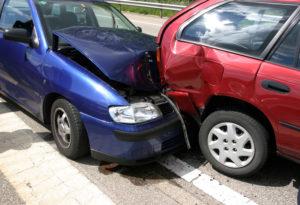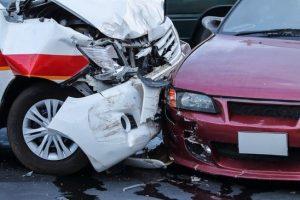
After being in a car crash, you may be left with unexpected expenses. You could have medical bills, property damage, and other losses. Fortunately, you may be able to claim damages in an accident claim.
If you were injured in a car crash caused by another person’s negligence, you may be able to seek compensation by filing an insurance claim or a civil suit. A personal injury lawyer can assist you with your claim. Learn what damages you may be able to claim after a car accident.
Damages You Can Get Reimbursed for After a Car Accident
The term damages refers to compensation you may be able to claim after an accident caused by another party’s negligent actions. Damages are meant to reimburse you for the cost of treating injuries or other financial losses you suffered as a result of the accident.
Every collision will cause different losses to those involved. The damages you may be entitled to will depend on several factors, including:
- The severity of your injuries
- The extent of your property damage damage
- If someone died in the collision
- Whether the accident involved wanton disregard for safety
- Whether or not you are partially at fault for the crash
You may not qualify for every type of damages available. The damages car accident victims may usually recover include:
Property Damage
When you are involved in a traffic accident, your vehicle may be subjected to property damage or a total loss. Additional property can also be damaged, such as items inside your vehicle at the time of the crash. You may be able to seek repayment for property damage after your car accident.
Claims for property damage may be handled separately from injury claims. You may seek compensation for property damage by filing a claim with the at-fault driver’s auto insurance company. You can prove property damage through:
- Photos of the accident scene
- Pictures of the vehicle damage
- Eyewitness statements
- Auto repair estimates or receipts
Medical Costs
After a car crash, you may have to visit multiple doctors just to get a proper diagnosis and treatment plan. Depending on your injuries, you may be left with lasting injuries or permanent disabilities. These expenses may be overwhelming if you are unable to work. Medical treatment can be costly, even with health insurance.
Medical costs resulting from a car accident may be included in your accident claim. You may be reimbursed for:
- Ambulance transportation
- Medical consultations
- Diagnostic testing
- Corrective surgeries
- Prescription drugs
- Physical therapy
- Medical devices or mobility aids
- In-home visits
Lost Income
After suffering serious bodily injury in a car wreck, you likely cannot return to work. It’s essential that you seek medical care and recover your health. As you recover, you may miss out on:
- Your regular salary
- Raises or promotions
- Employer-sponsored benefits
If you are permanently disabled, you may not be able to return to work or you may be forced to change careers. If you experienced reduced earning capacity, this can also factor into your car accident claim.
You can prove your need for lost income damages by proving:
- Pay stubs showing your normal earnings
- Proof of career advancement opportunities
- A doctor’s note explaining why you cannot return to work
Pain and Suffering
In addition to bodily harm, a car crash can cause you to suffer emotional harm. If your mental health declined or you experienced post-traumatic stress disorder (PTSD) as a result of the collision, you may qualify for pain and suffering.
To establish what you deserve for your mental anguish, take notes about how the accident made you feel. If you suffer anxiety, fear of driving, or depression, record your symptoms and how your life has been affected.
Wrongful Death Damages
According to the Centers for Disease Control and Prevention (CDC), more than 32,000 people are killed in car accidents every year. If you’ve lost a relative in a fatal car wreck, you may be able to pursue wrongful death damages. A wrongful death lawsuit may allow your family to claim compensation for:
- Your loved one’s medical bills
- Your relative’s pain and suffering
- The decedent’s loss of enjoyment of life
- Funeral and burial costs
- Loss of consortium
For a free legal consultation, call (800) 537-8185
What If You Are Partially at Fault for the Crash?
If you are partially responsible for causing the collision, you may still be entitled to partial compensation. Your state may follow modified or pure comparative negligence rules. The pure comparative negligence rule allows you to recover damages even if you are 99% responsible for the accident. However, your compensation is reduced by your percentage of fault.
The modified comparative negligence rule will forbid you from seeking compensation if you are 50% or 51% at fault, depending on your state. Stricter states will not allow you to recover any compensation if you are even 1% to blame for the accident. If your fault is in question, you may benefit from legal assistance.
How Long do You Have to Seek Damages After a Car Accident?
Depending on the state where your car crash happened, you may not have long to file your claim. The statute of limitations varies by state. In most states, you have to file your claim within two years of the date of your collision. However, some states only allow you to seek damages within one year.
If you fail to file your claim within your state’s legal time limit, you may be unable to hold the at-fault driver accountable for your losses. Working with a personal injury attorney can ensure your case is initiated before time runs out.
Questions?Call (800) 537-8185
to find a Morris Bart office near you.





